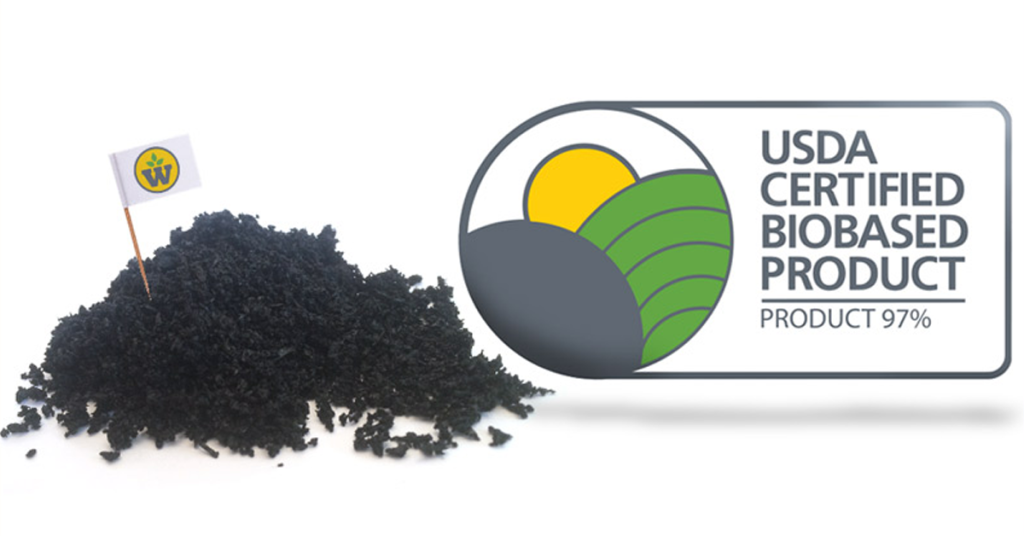What IS a USDA Certified Biobased Product?

The USDA Certified Biobased label on Wakefield Biochar Soil Conditioner products. Why? What does it mean? Where did it come from? It came from the Farm Bill introduced in 2002 where the United States Department of Agriculture (USDA) started the USDA BioPreferred program. This standardized an accreditation process for products with biobased materials. Biochar is a biobased material because it is produced from organic matter like trees, stover, palms, grasses, etc.
The 97% Biobased label indicates that biochar is 97% carbon — btw, that’s some high quality biochar. The biobased content measurement is used to determine how much of the carbon within material is derived from biomass. It’s a very clear indication of the amount of biobased material is used in manufacturing biochar instead of using less desirable (and less expensive) materials like petroleum-based alternatives. Think of it as a standard of quality… how pure is it?

What Are The Benefits Of USDA Testing
- By measuring the biobased content a manufacturer can modify its production to optimize how much carbon is retained.
- By standardizing the measure and allow for the USDA to control the testing we have a credible stamp of approval that is easily identified by customers.
- The standardization of the test allows for all manufacturers to easily be measured against each other for quality assurance.
Understanding Biobased Content*
This gets a bit technical for most of us common folk but to explain biobased content you need to know there are two methods to determine the biobased percentage – ASTM D6866 and CEN/TS 16137.
ASTM D6866 is a standard method used to measure biobased carbon content of any material – liquids, solids, or gases. It has been incorporated in several certification programs including the US Department of Agriculture’s BioPreferred Program.
CEN/TS 16137 is a technical specification used in Europe to measure the biobased carbon content of plastics and other carbon-containing polymers. The biobased carbon content is expressed as a fraction of sample mass, as a fraction of the total carbon content, or as a fraction of the total organic carbon content.
Biobased carbon content (“percent biobased”) – a measure of the amount of biomass-derived carbon in the product as compared to its total organic carbon content.
* Source: Beta Analytic Inc.
BETA is an accredited ISO/IEC 17025:2005 testing laboratory operating in conformance with ISO 9001:2008 management system requirements. It has demonstrated both the technical competency and management system requirements necessary to consistently deliver technically valid test results. These standards are universally recognized as the highest level of quality attainable by a testing laboratory.
Biobased vs Biodegradability
ASTM D6866 only quantifies the biobased content of a material. Its results do not have any implication on the material’s biodegradability.
Is it important to purchase USDA biobased materials?
Depends on how much you like living on the Earth. Continuing to use pertroleum based product for consumer goods, energy and agricultural amendments is proving to be very, very bad for the soil and then environment. Biobased materials are renewable sources with a positive impact on the environment. Biochar is a great example of a material that is carbon negative, productive to gardens and crops, purely organic, no chemicals, etc. It has everything you need and nothing you don’t.
Using USDA certified biobased products assures you of a high standard of quality in production. If you see the USDA Certified Biobased Product label you know the manufacturers passed the test for biobased content for that product.
Learn more about the USDA BioPreferred® program at https://www.biopreferred.gov/BioPreferred.





